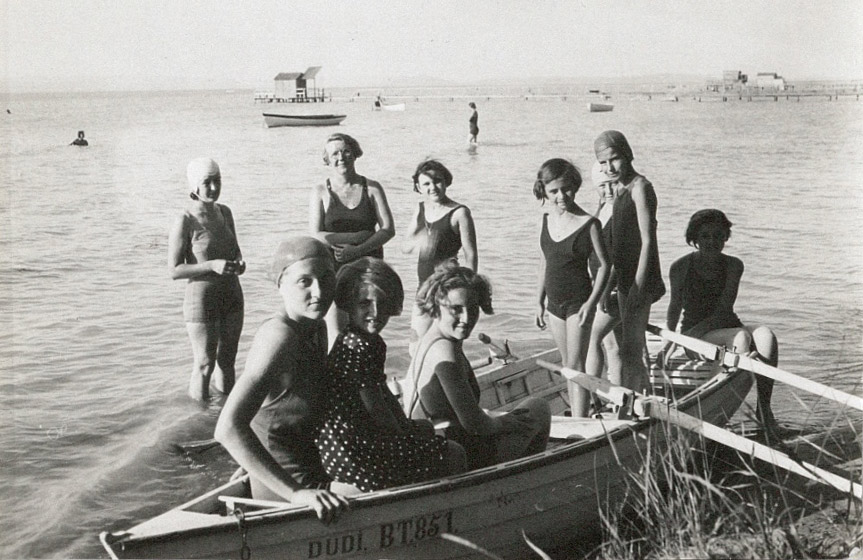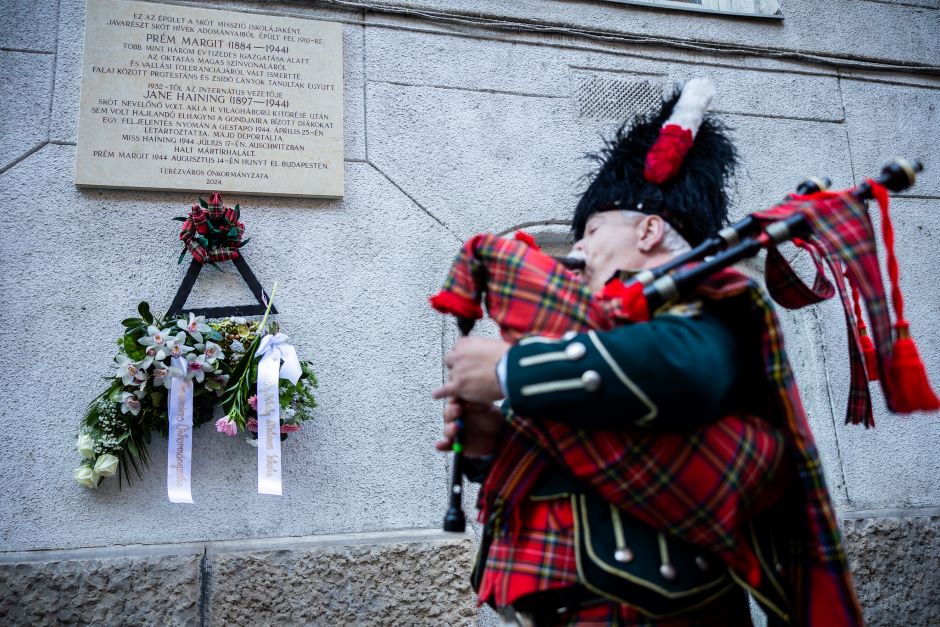Church volunteers in Budapest help protect village from flooding
Published on 1 October 2024 3 minutes read
A minister and two members of his congregation in Hungary helped fill 11,000 sandbags to protect an historic village from flooding.
Rev Aaron Stevens of St Columba's Church in Budapest, Hanis Habila and Rebekah Shultes sprung into action after Storm Boris threatened to overwhelm Harta, which is located on the banks of the Danube, the second longest river in Europe after the Volga in Russia.
They teamed up with Hungarian Reformed Church Aid (HRCA) a few weeks ago to protect the village, which is famed for its bespoke artisan craftsmanship, unique floral art and customs.

Harta is about 62 miles from Budapest and Mr Stevens explained why he and his companions got involved.
"St Columba's Church belongs both to the Church of Scotland's International Presbytery and the Reformed Church in Hungary, so it is only natural that when RCHA issued an urgent call for volunteers, I knew we had to join," he said.
An English-speaking congregation in a non-English speaking country, the church is like other congregations in the International Presbytery and has a special ministry among the international community.
The two young volunteers who shovelled dirt into sandbags are attached to St Columba's through the "Europe Cohort" program of Resonate Global Mission, a ministry of the Christian Reformed Church in North America.
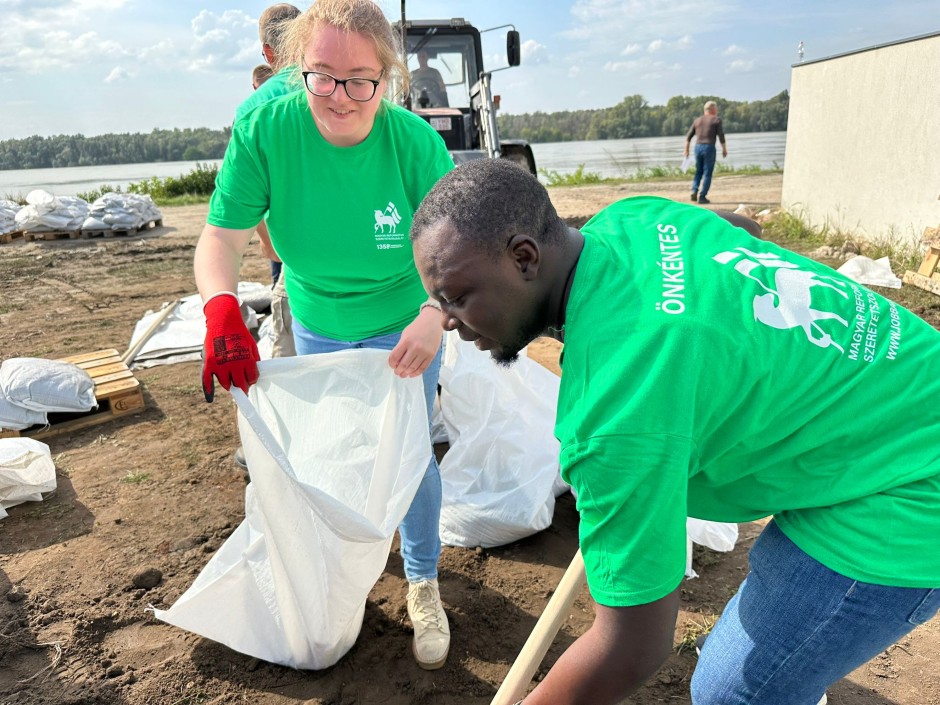
Hanis Habila, who is originally from Nigeria in Africa, said he did not have to think twice when he heard about the project.
"It seemed like the right thing to do," he explained.
"In situations like this, we only need to understand the need and how best we can help.
"It didn't matter if we spoke the same language or not."
Assisting the people of Harta in spite of the language barrier was also important to Rebekah Shultes.
"Even though it was in another language, that is part of the living abroad experience," said Ms Shultes, who is American.
"I was also more comfortable because I went with people who know more of the language than I do."
Loving service
In addition to filling sandbags, Mr Stevens used his fluent Hungarian language skills to arrange the cooperation beforehand, including a five-page volunteer contract and photo release forms.
Ms Shultes said: "When we first arrived, the first thing I noticed was how there were more people there than I expected.
"The pile of dirt we were using to make sandbags was very large, so I guess it was good there were so many people.
"The phrase 'many hands make light work' was reinforced by this experience as I watched the pile of dirt get smaller and smaller as the day went on."
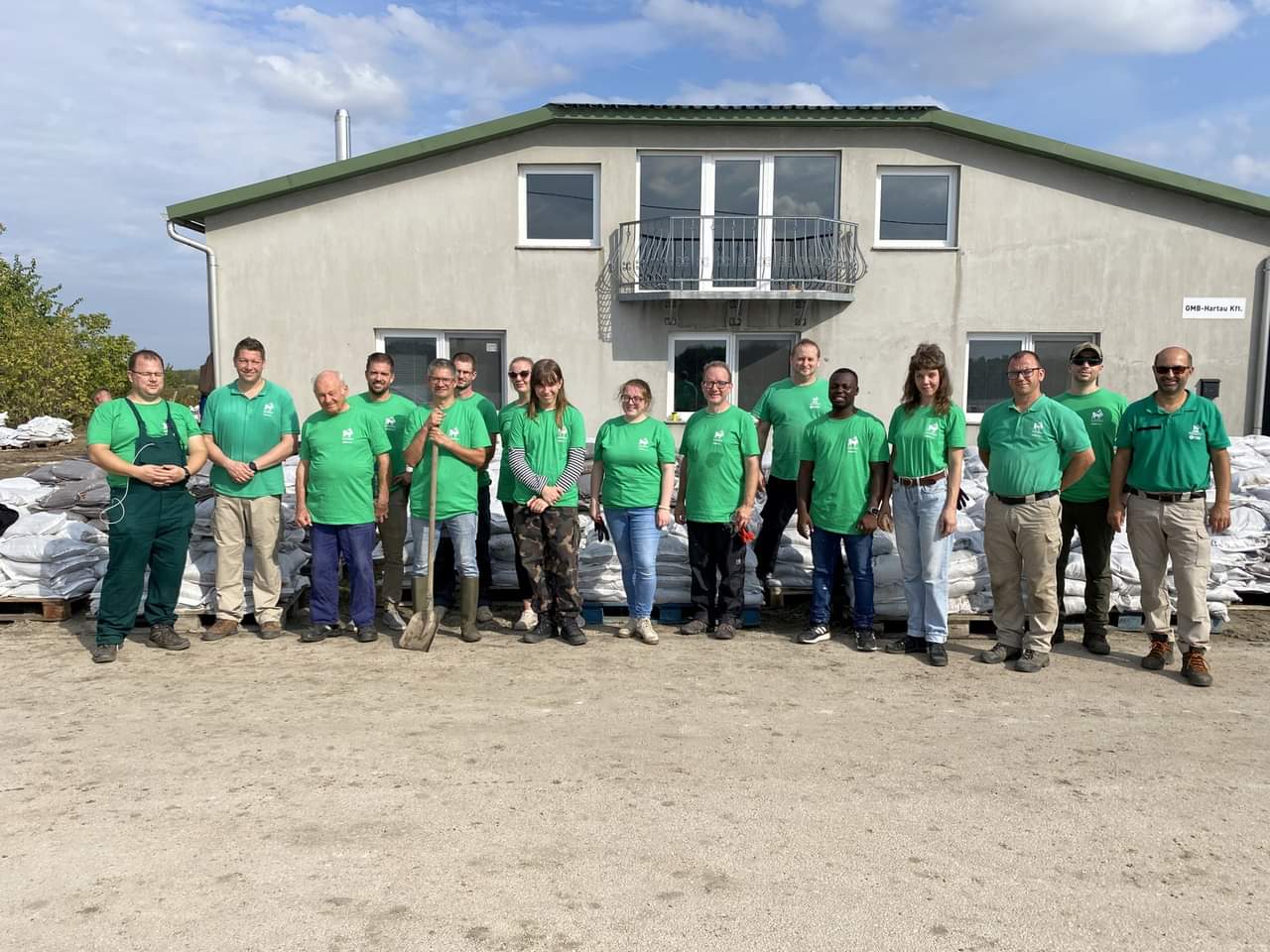
According to HRCA, a total of 11,000 sandbags were packed in Harta that day, in cooperation with a variety of other individuals and groups, including school pupils.
Mr Habila said: "There will always be people out there ready to offer a helping hand.
"I also couldn't help but notice how every other thing disappeared when the focus was turned to the problem at hand and how we all could collectively fix it."
Jane Haining
Storm Boris wreaked havoc in central and eastern Europe, leaving people dead and destitute.
The Danube river, which flows 1,770 miles from the Black Forest in Germany into the Black Sea, peaked at a 10-year high.
The water reached the steps of the Hungarian parliament in Budapest and flooded a riverside road called Jane Haining Rakpart.
It is named in honour of the matron of the Church of Scotland's former boarding school who died in the Auschwitz extermination camp in Nazi-occupied Poland after refusing to abandon Jewish school girls in her care during the Second World War.
Reflecting on the sandbag filling day, Mr Stevens said: "At this time and in this place, this was what the third Mark of Mission looked like - this was how we could respond to human need in loving service."
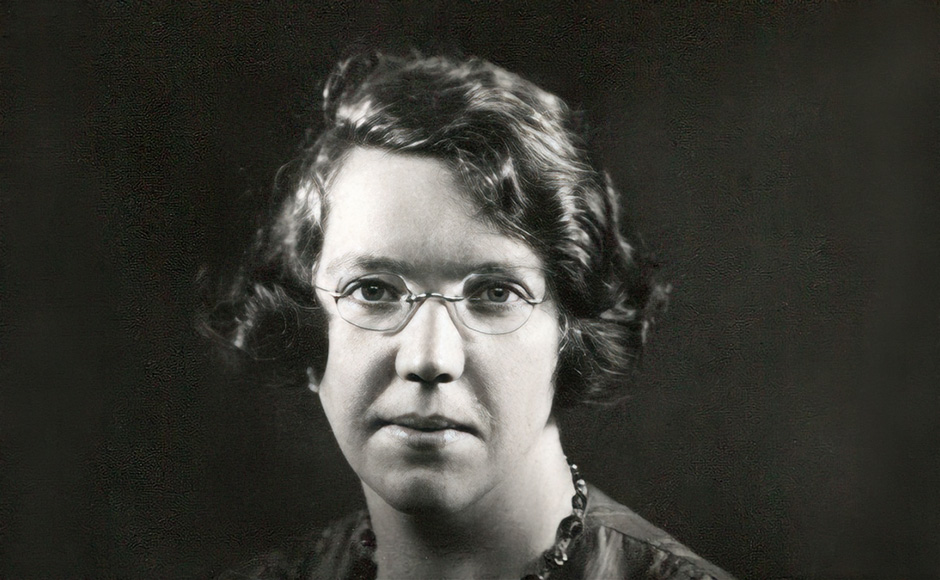
A plaque in commemoration of the Scottish Mission School matron and the headteacher, Margit Prem, has been erected on an exterior wall of the building on Vörösmarty.
